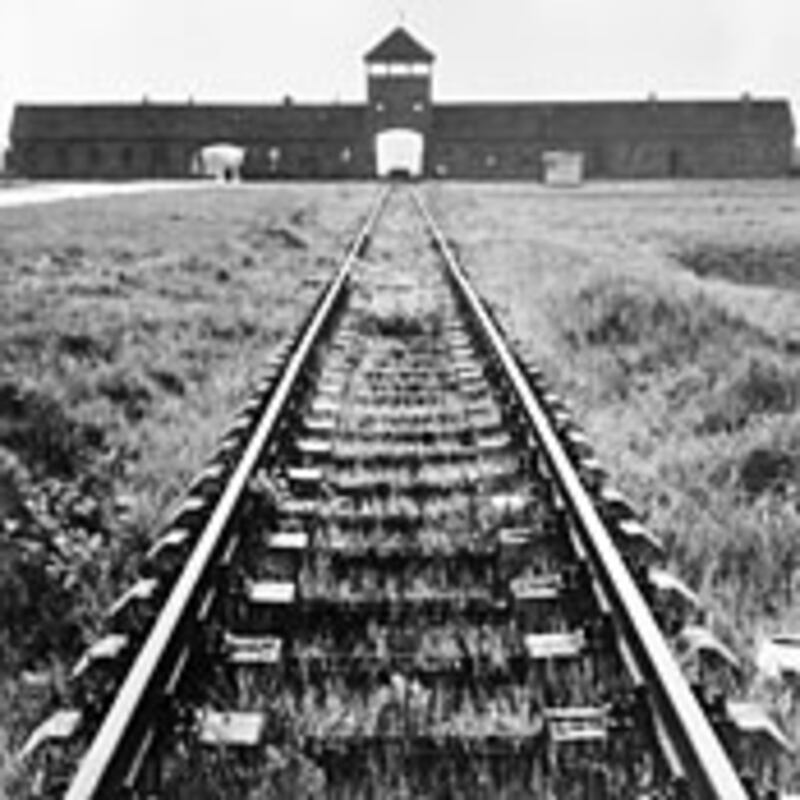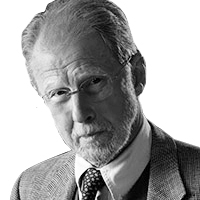Plus: Check out Book Beast, for more news on hot titles, authors and excerpts from the latest books.

The New York Times' Michiko Kakutani totally blew it with their nasty review of The Kindly Ones, Jonathan Littell’s sweeping Nazi novel. Michael Korda on why it’s a world-class masterpiece of astonishing brutality, originality, and force.
It used to be that the highest ambition of American novelists was to write “the Great American Novel,” that great white whale of American fiction that would encompass all the American experience in one great book. Thomas Wolfe’s Look Homeward, Angel was perhaps the last serious attempt to reach for this illusory honor—Mailer was too scatty, Steinbeck dropped the ball with East of Eden, Hemingway was too much of an expatriate, Dreiser perhaps came closer to it than either of them, but how many people read Dreiser any more? Today, it’s a race that is no longer being run. American novelists no longer have the ambition, the reach, the balls, frankly, to seek that great white whale.
You want to read about Hell, here it is. If you don’t have the strength to read it, tough shit.
There is another, even higher, compelling ambition: to write the big, great, world-class book that, to borrow from T. E. Lawrence, will rank beside the giants of world literature: Moby-Dick, Thus Spoke Zarathustra and Crime and Punishment, as TEL defined his competitors when he set out to write Seven Pillars of Wisdom. This is a more challenging ambition, of course, but it is with this in mind that one must approach Jonathan Littell’s The Kindly Ones. Clearly, Littell is determined to play in the biggest of big leagues, not the American ones, but the world ones. Since he is American, it is astonishing that, at a time of mutual anger between France and the US, he should become the first American writer to win not only France’s prestigious Prix Goncourt, but the even more prestigious Grand Prix du Roman of the Académie française.
And with a novel about the Holocaust, in which the central figure is a suave, secretly homosexual, cynical arriviste and ambitious SS officer, a Nazi and a mass murderer who moves in the highest circles of the Third Reich, and whose darker secrets include incest and the savage murder of his own mother and her second husband (strangulation for her, an axe for him).
Dr. Max Aue is, in short, a monster, but not a grotesquely imagined one like Dr. Hannibal Lecter, rather a realistic one, of which Germany produced so many between 1933 and 1945. It is altogether fitting that he ends up as a respectable married businessman selling (of all things) lace after the war, with no feelings of guilt—on the contrary, he is eager to tell us that he is an ordinary person just like you and me, who might easily have slipped into his position, had we been born German (and Aryan).
Littell, in brief, aspired to write the “Great European Novel,” the Moby-Dick of Nazi Germany, the Crime and Punishment of the Holocaust; he is nothing if not ambitious. The book is likely to challenge a great many fiction readers, frankly. It is 984 pages long, each page is densely packed with small type (and with narrow margins). Mr. Littell sticks stubbornly to the French way of using quotes, and avoids paragraphs and space breaks, so that reading the book is like swimming far out to sea without a life belt, or climbing a mountain until one runs out of breath.
When I started work at Simon & Schuster in 1958, each of us got a bronze paperweight on which was written, in raised type, “‘Give the reader a break,’ Richard E. Simon.” Well, Dick Simon would have a lot to say, were he alive today, about The Kindly Ones. Littell doesn’t give the reader a break for 984 pages—I mean, this book is dense, it’s like chewing peanut-butter brittle, it makes Thus Spoke Zarathustra read like Valley of the Dolls. Yes, it’s a masterpiece, yes, it’s important, but no, reading it on your Kindle is going to be a chore. Stock up on batteries first!
A moment of confession: As a graduate of Institut Le Rosey, in Switzerland, I am bilingual (actually almost tri-lingual, since I learned Russian later, in the Royal Air Force, but who’s counting?), and originally read Mr. Littell’s novel in French, when it first came out there (it was neither easy nor cheap to buy a copy at the French bookstore in Rockefeller Center, since vanished, alas, a great cultural loss), and was bowled over by it.
The density of the pages, the weirdness of the punctuation, the tiny margins, these are all par for the course for French book production, on s’accoutume. But I read it without pausing for breath, so powerful and terrifying was its portrayal of Nazi Germany, and of the Holocaust for once seen through the eyes of one of the perpetrators, instead of one of the victims. It was like drowning. There is not an ounce of sentimentality, or guilt, or apology in this very long book—it presents a searing portrait of the Nazis as seen by one of them.
Take it or leave it, Littell knows almost everything there is to know about Nazi Germany, gets every detail right, and gives us the whole thing without sugar coating, or any attempt to make it any easier on your conscience or your feelings or whatever remains of your sense of what is right, or justice, or any lingering hope you may have that murderers feel remorse, or that the murdered have dignity. The murderers here—the hero foremost—are without pity, remorse, or guilt; murdering is their job, the way to promotion and honors, duty; the murdered are faceless, masses of men, women, and children whose death is merely a kind of large-scale German public-works program, carried out with the support of many Ukrainians, Byelorussians and inhabitants of the Baltic republics, who were as happy to see their Jewish neighbors killed as the Germans were to do it. Littell is a genius, both as a historian, and as a novelist, but he isn’t trying to make you feel good about yourself, or feel morally superior to the Germans, or come away from the book with the feeling that anything has been gained or proved by the murder in cold blood of six million people. Most of the people who did it got away with it, like the hero of this novel, and didn’t lose a night’s sleep over it, and the people who were murdered are—dead.
Deader than dead, actually, because all over the world there are people who refuse to believe that they were ever killed in the first place, not just among jihadists, or in the Arab mainstream press, or in the tattooed ranks of the Aryan Nation, or Catholic bishops, but also among otherwise respectable people and educators who still don’t get it that perfectly ordinary Germans committed mass murder, then, when the war was over, went home and got on with their lives, and even collected their pensions. It’s not Littell’s objective to make you feel good, or give you false hope, unlike the end of Steven Spielberg’s Schindler’s List, in which elderly Jewish survivors line up to lay a pious, grateful stone on Schindler’s grave—he wants you to feel bad. And of course, if reading in copious detail about the callous murder of millions of people by Germans who merely thought they were doing their job, and went back to their barracks every evening to eat a good hot meal, have a couple of drinks and get a good night’s sleep before setting out again after breakfast the next morning to kill more, if all of that doesn’t shake you, then nothing will. I guarantee you, if you read this book to the end, and if you have any kind of taste at all, you won’t be able to put it down for a moment—lay in snacks and drinks!—you will be upset, disturbed, revolted, and deeply challenged. Dr. Max Aue is weirdly, distressingly, horribly fascinating, he takes us in excruciating detail to Auschwitz, to the killing grounds of East Europe, to Stalingrad under siege, to Hitler’s bunker, to every strange, distorted, Breughelesque, grotesque and terrifying level of the Third Reich, without ever, for one moment, giving us a chance to feel superior to these people.
Littell’s book was a huge bestseller in Europe, especially in France, where the Holocaust is a more charged and disturbing piece of history than it is here. After all, we British and Americans have never been conquered and occupied by the Germans, or forced to make the choice between defiance and collaboration, or haunted by the choices, evasions and moral ambiguities that only a defeated and occupied country can feel. It is easier to take a high moral position for us than it was for people who saw the Gestapo at work, whose friendly local policeman collaborated with the Germans, who saw neighbors taken away as hostages, and shot. We, in America and Great Britain, have never had to live with evil and ignore it, or pretend it wasn’t happening, as people did all over Europe, and indeed even in Germany herself.
Littell brings this all to sprawling life and almost unbearable realism, forcing us to watch, eyes wide open, some of the worst moments in human history, but related by a man who can—and does—live with it, and who despite his intelligence, education, eerie charm, and European sophistication, is unapologetically one of the killers, and gets away with it unpunished, even by his own conscience.
Personally, I could live without the big surprise at the end of the book, which reminded me of Philip Roth’s The Breast, or perhaps Gogol’s The Nose, neither of them among my favorite books, and if I had been Littell’s editor I would have tried to talk him out of it (and would probably have lost). Never mind, unlike, say, Tom Cruise in Valkyrie, this is the real thing, a journey into the belly of the beast, a chance to live through the doings of mankind at its worst, a book that is relentlessly fascinating, ambitious beyond scope in that it tries to show us in every unforgiving detail what we least want to see, and which never once lets the reader, or the Germans, off the hook. You want to read about Hell, here it is. If you don’t have the strength to read it, tough shit. It’s a dreadful, compelling, brilliantly researched, and imagined masterpiece, a terrifying literary achievement, and perhaps the first work of fiction to come out of the Holocaust that places us in its very heart, and keeps us there.
The supporting cast of characters includes Heydrich, Himmler, Hitler, Speer, Eichmann, and many more, and you will not like them any more than the fastidious Dr. Aue does.
I have no idea what Jonathan Littell will write after this (and his gifted translator Charlotte Mandell, for I can detect no significant difference between the French and the English texts of the book), but I don’t envy him the job of following a 984-page work of such astonishing brutality, originality, and force.
In the meantime, read this one.
It’s worth the effort.
New York Times bestselling author Michael Korda's books include Ike, Horse People, Country Matters, Ulysses S. Grant, and Charmed Lives.






